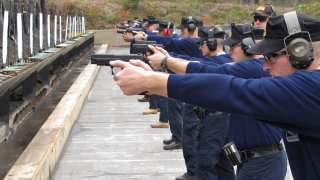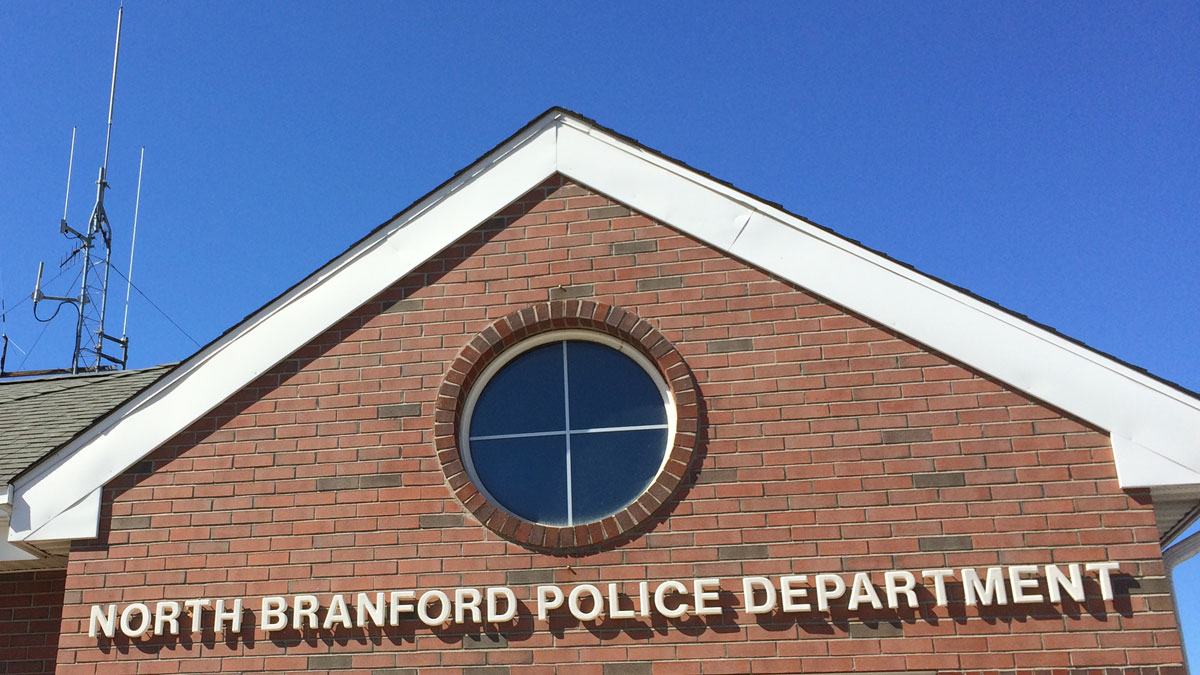
A new use-of-force training program that will be required for all police officers in Connecticut will emphasize “moral courage,” empathy and de-escalation in an effort to reduce fatal shootings and other violent acts by officers.
Officials believe it is one of the first use-of-force training programs in the country to be mandated across an entire state.
Most police departments provide their own such training to officers based on state laws, which can result in patchworks of different standards and interpretations, said Keith Mello, police chief in Milford, Connecticut, and chairman of the state Police Officer Standards and Training Council.
“We wanted to do something different and unique, and that is to create one single standard, one policy, one sheet of music by which police officers will be guided in making use-of-force decisions, and one training program," Mello said Thursday at a council meeting where the training program was unanimously approved.
Get top local stories in Connecticut delivered to you every morning. >Sign up for NBC Connecticut's News Headlines newsletter.
All of the more than 8,000 law enforcement officers in the state must take the four-hour training program by Dec. 31, 2022. They can apply for an extension of the deadline to April 1, 2023, at the latest. The council includes law enforcement officials, policy experts and people who have been negatively affected by the criminal justice system.
The training is in response to a series of police accountability laws approved by the legislature and governor in recent years, prompted by police killings of Black people across the country — including in Connecticut — that led to widespread protests and calls for reforms. In January, new laws will take effect that limit the circumstances in which police can be justified in using deadly force including chokeholds.
In a presentation to the police standards council on Thursday, Milford Police Lt. Joseph Sikorsky showed photos of police using force on people, including Minneapolis officer Derek Chauvin pressing his knee on George Floyd's neck last year. Floyd died, and Chauvin was later convicted of third-degree murder and other charges and sentenced to more than 22 years in prison. Three other officers who did not intervene also were arrested and await trial.
Local
“There’s no doubt that these pictures are tremendously alarming and they’re traumatic and they’re horrific and they’re obviously a poor example of law enforcement,” Sikorsky said.
“But what we want officers to ask themselves: Is any of this necessary?” he said. “Is it proportionate? It is reasonable? Is it legal? Where’s our intervention? Where’s our moral courage? Where’s our image going when the public looks at examples of our profession like this?”
The training specifies when officers can use any kind of force, non-lethal and lethal, under new state laws. It will begin next week with officials being trained on how to provide the instruction, Mello said.
The new deadly force laws that will take effect in January add a new requirement that an officer's use of deadly force be “objectively reasonable” under the circumstances. When officers are making arrests or preventing escapes, they also will be required to exhaust reasonable alternatives to the use of deadly force and reasonably believe the force doesn't pose a substantial risk of injury to a third party.
New state laws also require officers to intervene when other officers are using inappropriate force, ban standing or kneeling on people's necks and restrict the use of chokeholds and other uses of force.
“We have control over holding each other accountable and moving forward through consistent training, but having a solid grasp and compassion and outright effort towards doing what’s right, even when no one’s looking,” Sikorsky said.
Police officials said the training is aimed at changing the mindset of police, making officers less confrontational and more empathetic to the people they are dealing with. The program will emphasize de-escalating situations, and determining whether situations involve mental illness, developmental disabilities, language barriers or drug and alcohol use so they can respond appropriately.
Officers will continue to be justified in using deadly force if their lives or the lives of others are in immediate danger.
“The badge we wear is a symbol of public faith,” said Lawrence Terra, assistant police chief in West Hartford. “With this authority comes great responsibility to exercise sound judgment and restraint, using physical force very judiciously and only when and to the extent necessary. Physical force must be considered a last resort.”



